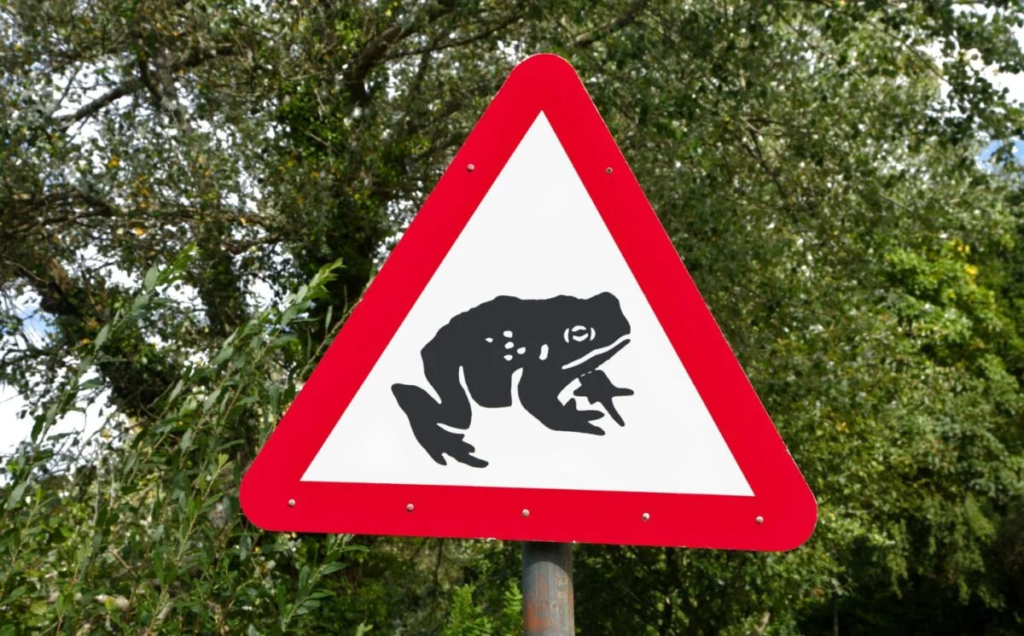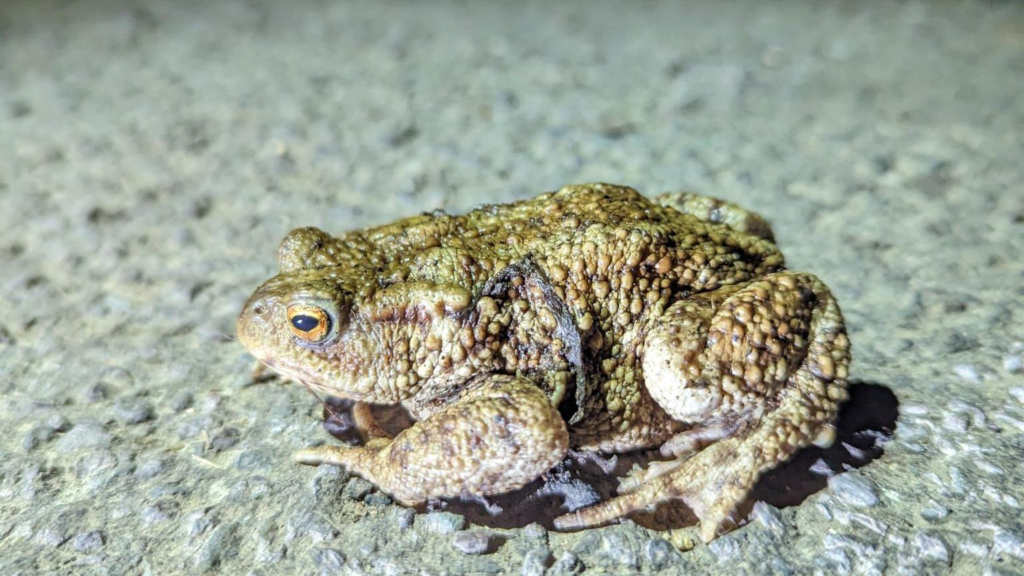Charlcombe Lane will be closed for six weeks, preventing vehicles from endangering the amphibians as they cross to reach their breeding lake. This seasonal road closure has been a vital measure in protecting the local amphibian population, significantly reducing mortality rates.
The natural world is full of wonders, and among them is the incredible migration of amphibians to their breeding grounds. Every year, thousands of toads, frogs, and newts embark on this journey, facing numerous threats, including road traffic. In Bath, a special conservation effort is underway to safeguard these creatures.
A Lifeline for Amphibians: The Impact of Road Closure
Charlcombe Lane’s annual closure is one of only four such initiatives in the UK, highlighting the exceptional importance of this conservation effort. Before the closure was introduced in 2003, an alarming 62% of amphibians attempting to cross the road were killed by vehicles.
However, since implementing this measure, the figure has dropped dramatically to just 6% in 2024. This significant decline in roadkill has allowed the local amphibian population to remain stable, even as national trends indicate a steep decline in species such as the common toad.
Last year, more than 3,200 amphibians successfully made their way across the half-mile (0.8 km) stretch of road, marking the busiest migration season in 14 years. Helen Hobbs, from the Charlcombe Toad Rescue Group, has emphasized the importance of this initiative, describing it as a “game changer” for local conservation efforts.
Read : Elephant Killed Spanish Tourist While She Was Bathing It at Koh Yao Elephant Care Centre
With climate change making it increasingly difficult to predict peak amphibian migration periods, the six-week road closure provides a crucial buffer to ensure their safe passage.
Dedicated Volunteers: The Guardians of Amphibian Migration
This ambitious conservation effort would not be possible without the dedication of volunteers who spend hundreds of hours patrolling the closed lane.
Read : Several Hospitalized with Disturbing Hallucinations after Eating Mushroom Gummies in Australia
Wearing high-visibility jackets and equipped with torches and buckets, these passionate individuals carefully collect the amphibians and transport them safely to designated drop-off points near their breeding lake. The use of latex-free gloves ensures no contamination occurs, further protecting the delicate creatures.

On average, volunteers contribute more than 600 hours of their time to patrolling the lane, ensuring that as many amphibians as possible make it safely to their destination. This hands-on approach has had a direct and positive impact on the amphibian population, reinforcing the importance of community-driven conservation initiatives.
The Bigger Picture: Amphibian Conservation Challenges
The closure of Charlcombe Lane is an inspiring example of how local action can contribute to global conservation efforts. However, amphibians continue to face a range of threats beyond road traffic.
Habitat loss, urban development, pollution, and climate change all pose significant challenges to their survival. Conservation charity Froglife, which compiles national data on toad patrols, has reported that common toad populations have declined by a staggering 68% over the past 30 years.

Despite these worrying trends, initiatives like the Charlcombe Lane closure provide a glimmer of hope. By protecting amphibians during their critical migration period, communities can help sustain local populations and raise awareness about the broader challenges facing these species.
Efforts such as this also highlight the need for continued research, habitat preservation, and public engagement in wildlife conservation.
The success of the Charlcombe Lane project serves as an example for other communities facing similar challenges. It demonstrates that small, targeted interventions can make a significant difference in species survival.
Moving forward, continued support and awareness will be essential to ensuring that amphibians—and the ecosystems they support—remain a vital part of our natural world for generations to come.

